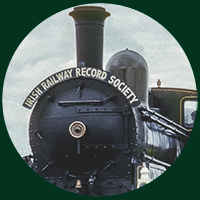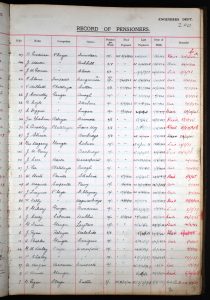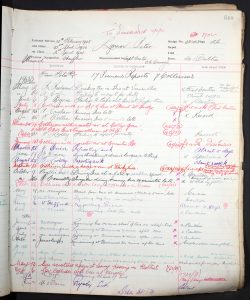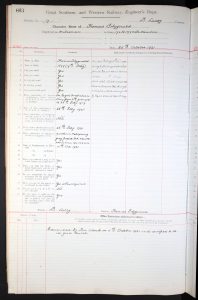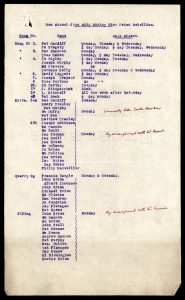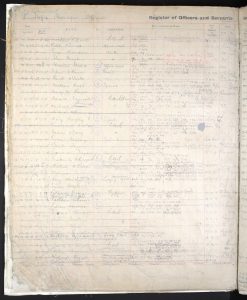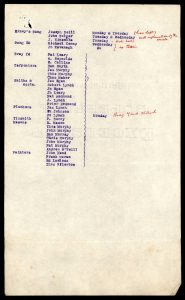
IRRS & Ancestry announcement!
The Irish Railway Record Society and Ancestry have come together to digitise historical personnel records pertaining to men and women employed by the railways all across Ireland, including bus lines and tramways;
With over 300,000 records coming online for the very first time, users can learn more about the working lives of drivers, inspectors, clerks, engineers, platelayers and more!
This fascinating collection ranges from 1870-1940, covering a period of much change for Ireland, and shows how the railway companies recorded major historical events such as work-absences during the 1913 Dublin lock-out, participation in the 1916 Rising, as well as noting employees who served in World War One.
For Ancestry subscribers, please click link to access the Ireland Railway Employment Records, covering the years 1870-1940
Samples of the records:
The “Ireland, Railway Records, 1870-1940” Collection:
This collection captures the lives of men and women employed by the railways of Ireland, including bus lines and tramways. The country’s rail system was owned by private companies, serving different parts of the country, who kept detailed records on their employees. Whether for a driver, clerk, or engineer, these records can show an employee’s work history, wages, merits, and even punishments.
Life-altering events like accidental injuries and retirement are also included. In addition, this collection shows how the railway companies handled historical events, such as work-absences during the 1916 Rising and noting employees who returned home from service in World War I.
In 1925, all the companies which lay wholly in the Irish Free State merged to become the Great Southern Railway. This company established bus and truck services during the thirties. In 1945 the Great Southern Railways amalgamated with the Dublin United Transport Company railway companies to form Córas Iompair Éireann (CIE), Ireland’s national transport service. In 1958, CIE absorbed those parts of the Great Northern which lay south of the border. The Irish Railway Record Society have worked closely with CIE to protect the personnel records of the past, saving them for future generations to enjoy.
Further sample of the records:
Using this collection for genealogical research:
If your ancestor was employed by the railways, this collection can provide the following information about them:
- Birth date and place
- Death date and place
- Occupation
- The station or depot where they worked
- Salary
- Date of employment and termination
You may find even more details about your ancestor’s work life, such as pay raises, days taken for sick leave, and membership of associations or trade unions. Depending on your ancestor’s job, railway records may also provide personnel files.
Knowing the dates and locations of your ancestor’s employment can help you track their movements. Bear in mind this collection covers 7 decades worth of documents, so employee records can vary in scope and detail.
About Ancestry:
Ancestry®, the global leader in family history, empowers journeys of personal discovery to enrich lives. With our unparalleled collection of more than 60 billion records, over 3 million subscribers and over 25 million people in our growing DNA network, customers can discover their family story and gain a new level of understanding about their lives. Over the past 40 years, we’ve built trusted relationships with millions of people who have chosen us as the platform for discovering, preserving, and sharing the most important information about themselves and their families.
For further information, please see Ancestry website www.ancestry.co.uk
